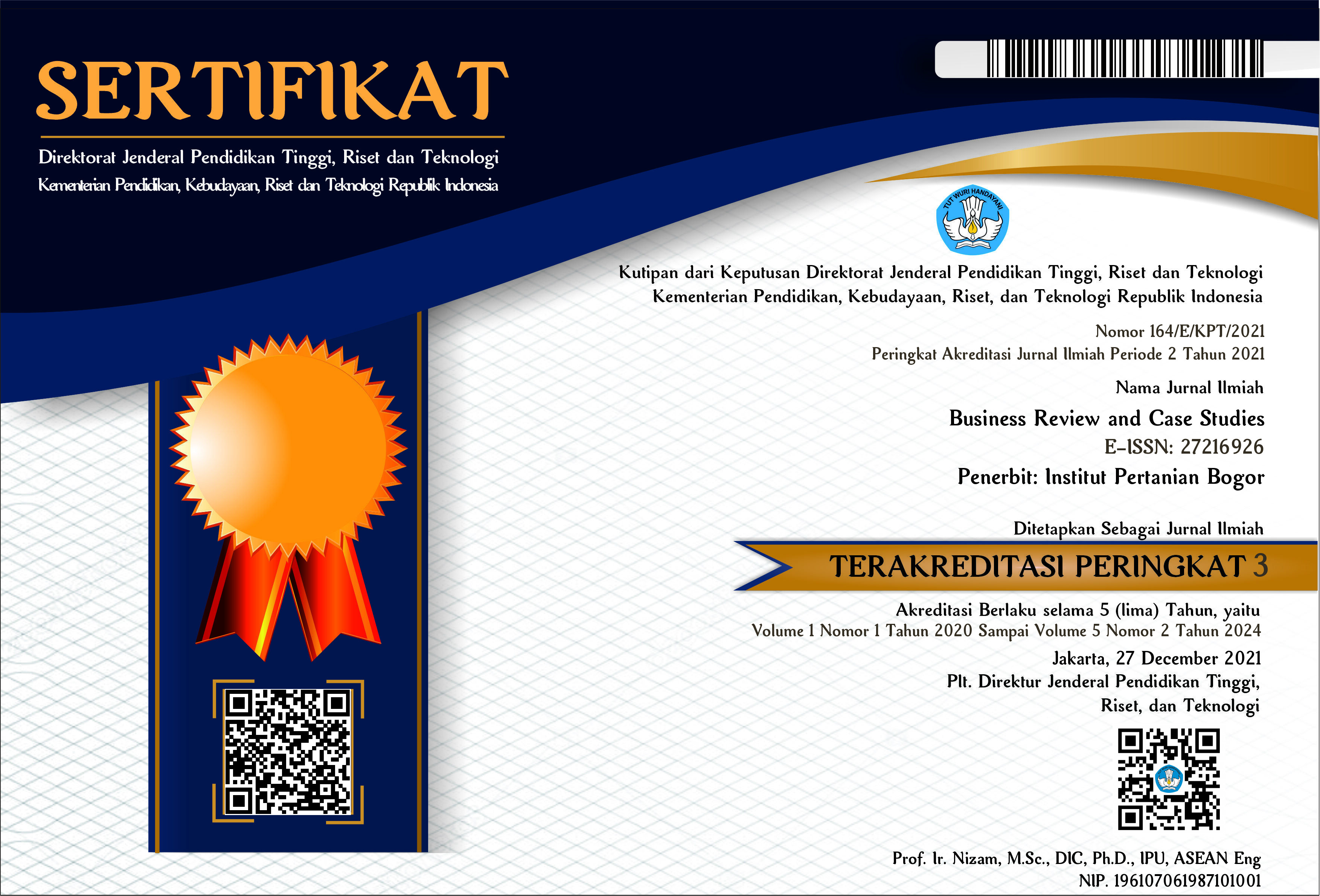Competing With Ride-Hailing Startups: Business Transformation Strategies for Conventional Taxi Companies in Indonesia
Abstract
The emergence of ride-hailing startups has dramatically changed the transportation landscape, threatening the existence of conventional taxi services. These new players have disrupted the traditional taxi industry, challenged their market share, and forced conventional taxi companies to adapt to changing consumer demands. As a result, conventional taxi companies like PT XYZ in Indonesia need to implement effective business transformation strategies to stay competitive and maintain their position in the market. This research implements a quantitative and qualitative descriptive approach and uses data analysis techniques, namely the IFE, EFE, IE matrix, QSPM, and Business Transformation Domain. The IFE analysis showed that a strong and strategic taxi distribution network in major cities was PT XYZ's main strength, while the company's financial position was a weakness. The EFE analysis identifies the high level of mobility and transportation needs as opportunity factors, while the standardization of fares, the number of fleets, and the lack of identity of online ride-hailing are threat factors. PT XYZ could implement the five domains of the digital transformation framework by increasing its business value by offering innovative taxi services, expanding service networks, improving customer interaction, developing business innovation through technology, utilizing data and analytics, and focusing on the company's strengths to compete with online taxi companies.
Keywords: business competitiveness, business transformation, digital transformation domains, IE Matrix, QSPM







.jpg)






